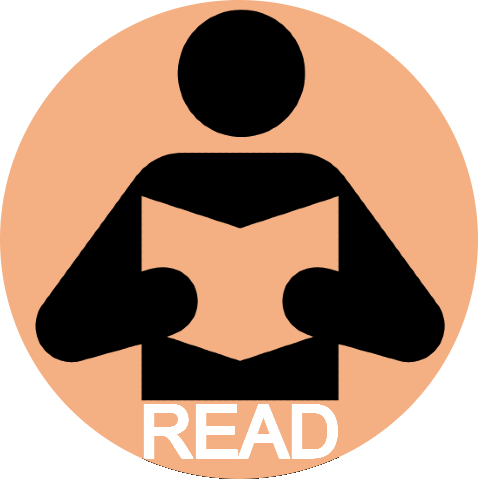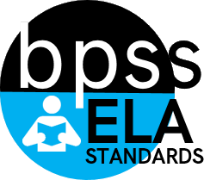ELA-08.C.01  | 8th (ELA) Targeted Standard (C) Communications (PC) Presentational Communication
Learners will organize and express information in a format appropriate to the audience and purpose.
|
ELA-08.C.01 Construct and deliver formal and informal presentations considering the audience and purpose, including multimedia components when appropriate.
 Proficiency Scale Proficiency Scale
Progressions
Standard C.01: Presentations - ELA-00.C.01 Describe personal interests or tell stories orally to a targeted audience.
- ELA-01.C.01 Describe people, places, things, and events with relevant details expressing ideas orally to a targeted audience.
- ELA-02.C.01 Report on a topic or text, tell a story or recount an experience to a targeted audience with relevant facts and descriptive details.
- ELA-03.C.01 Report relevant facts and descriptive details of a topic, text, story, or experience for a targeted audience.
- ELA-04.C.01 Organize and present information as an individual and group for a formal and informal audience.
- ELA-05.C.01 Organize and present information as an individual and group for a formal and informal audience.
- ELA-06.C.01 Construct and deliver formal and informal presentations considering the provided audience and purpose, including multimedia components when appropriate.
- ELA-07.C.01 Construct and deliver formal and informal presentations considering the audience and purpose using multimedia components when appropriate.
- ELA-08.C.01 Construct and deliver formal and informal presentations considering the audience and purpose, including multimedia components when appropriate.
- ELA-09.C.01 Construct and deliver formal and informal presentations, incorporating multimedia components when appropriate for the audience and purpose.
- ELA-10.C.01 Construct and deliver formal and informal presentations, incorporating multimedia components when appropriate for the audience and purpose.
- ELA-11.C.01 Construct and deliver formal and informal presentations, incorporating multimedia components when appropriate for the audience and purpose.
- ELA-12.C.01 Construct and deliver formal and informal presentations, incorporating multimedia components when appropriate for the audience and purpose.
|
|
ELA-08.C.02  | 8th (ELA) Targeted Standard (C) Communications (PC) Presentational Communication
Learners will organize and express information in a format appropriate to the audience and purpose.
|
ELA-08.C.02 Present ideas using proper eye contact, body language, volume, and pronunciation in formal and informal presentations.
 Proficiency Scale Proficiency Scale
Progressions
Standard C.02: Giving Oral Presentations - ELA-00.C.02 Speak audibly to express thoughts, feelings, and ideas.
- ELA-01.C.02 Speak audibly in complete sentences to express thoughts, feelings, and ideas.
- ELA-02.C.02 Speak audibly in complete sentences when proper to the task and situation to provide requested details or clarifications.
- ELA-03.C.02 Speak in complete sentences using proper eye contact and volume to express thoughts, feelings, and ideas.
- ELA-04.C.02 Present ideas using proper eye contact, body language, and volume in formal and informal situations.
- ELA-05.C.02 Present ideas using proper eye contact, body language, and volume in formal and informal situations.
- ELA-06.C.02 Present ideas using proper eye contact, body language, volume, and pronunciation in formal and informal presentations.
- ELA-07.C.02 Present ideas using proper eye contact, body language, volume, and pronunciation in formal and informal presentations.
- ELA-08.C.02 Present ideas using proper eye contact, body language, volume, and pronunciation in formal and informal presentations.
- ELA-09.C.02 Implement proper verbal and nonverbal communication for tasks and situations.
- ELA-10.C.02 Implement proper verbal and nonverbal communication for tasks and situations.
- ELA-11.C.02 Implement proper verbal and nonverbal communication for the task and situation.
- ELA-12.C.02 Implement proper verbal and nonverbal communication for the task and situation.
|
|
ELA-08.C.05

|
8th (ELA) Targeted Standard
(C) Communications
(C) Collaboration
Learners will engage in a range of discussions with various partners on relevant topics, texts, and issues.
|
ELA-08.C.05 Prepare for discussions by finding relevant and specific connections to the topic or text.
 Proficiency Scale Proficiency Scale
Progressions
Standard C.05: Preparations for Discussions
- ELA-06.C.05 Prepare for discussions by finding relevant connections to the topic or text.
- ELA-07.C.05 Prepare for discussions by finding relevant and specific connections to the topic or text.
- ELA-08.C.05 Prepare for discussions by finding relevant and specific connections to the topic or text.
- ELA-09.C.05 Prepare for discussions by reading and researching ideas to be discussed.
- ELA-10.C.05 Prepare for discussions by reading and researching ideas to be discussed.
- ELA-11.C.05 Prepare for discussions by reading and researching ideas.
- ELA-12.C.05 Prepare for discussions by reading and researching ideas.
|
|
ELA-08.C.06

|
8th (ELA) Targeted Standard
(C) Communications
(C) Collaboration
Learners will engage in a range of discussions with various partners on relevant topics, texts, and issues.
|
ELA-08.C.06 Engage in a range of discussions and/or debates.
 Proficiency Scale Proficiency Scale
Sub-Standards
- (a.) Use active listening skills to stay focused and present.
- (b.) Reference others’ ideas and/or connections to a text.
- (c.) Synthesize texts.
Progressions
Standard C.06: Group Discussion and Debate
- ELA-00.C.06 Participate in conversations by listening to others and taking turns speaking.
- ELA-01.C.06 Participate in conversations by listening to others and taking turns speaking about topics, continuing through multiple exchanges.
- ELA-02.C.06 Participate in conversations by linking comments to the remarks of others and asking questions.
- ELA-03.C.06 Engage in conversations by asking and answering questions using active listening skills.
- ELA-04.C.06 Engage in a range of discussions by using active listening skills, posing, and responding to specific questions.
- ELA-05.C.06 Engage in a range of discussions using active listening skills, posing and responding to specific questions to clarify information.
- ELA-06.C.06 Engage in a range of discussions and/or debates using active listening skills to be focused and present.
- ELA-07.C.06 Engage in a range of discussions and/or debates.
- ELA-08.C.06 Engage in a range of discussions and/or debates.
- ELA-09.C.06 Engage in respectful discussions or debates.
- ELA-10.C.06 Engage in respectful discussions or debates.
- ELA-11.C.06 Engage in respectful discussions or debates.
- ELA-12.C.06 Engage in respectful discussions or debates.
|
|
ELA-08.C.07  | 8th (ELA) Targeted Standard (C) Communications (C) Collaboration
Learners will engage in a range of discussions with various partners on relevant topics, texts, and issues.
|
ELA-08.C.07 Collaborate cooperatively with peers to accomplish a common goal or purpose.
 Proficiency Scale Proficiency Scale
Progressions
Standard C.07: Group Collaboration
- ELA-00.C.07 Work collaboratively by following agreed-upon rules and simple one- and two-step oral directions.*
- ELA-01.C.07 Work collaboratively by following agreed-upon rules and simple two- and three-step oral directions and offering one- and two-step verbal directions.
- ELA-02.C.07 Work collaboratively by following agreed-upon rules and following/offering multi-step oral directions.
- ELA-03.C.07 Engage collaboratively by following agreed-upon rules.
- ELA-04.C.07 Engage collaboratively to accomplish a common goal or purpose.
- ELA-05.C.07 Engage collaboratively to accomplish a common goal or purpose.
- ELA-06.C.07 Collaborate cooperatively with peers to accomplish a common goal or purpose.
- ELA-07.C.07 Collaborate cooperatively with peers to accomplish a common goal or purpose.
- ELA-08.C.07 Collaborate cooperatively with peers to accomplish a common goal or purpose.
- ELA-09.C.07 Collaborate on a specific task or purpose in a productive climate by following norms, processes, and roles.
- ELA-10.C.07 Collaborate on a specific task or purpose in a productive climate by following norms, processes, and roles.
- ELA-11.C.07 Collaborate on a specific task or purpose in a productive climate by establishing and following norms, processes, and roles.
- ELA-12.C.07 Collaborate on a specific task or purpose in a productive climate by establishing and following norms, processes, and roles.
|
|
ELA-08.IR.01

|
8th (ELA) Targeted Standard
(IR) Inquiry and Research
(S1) Select and Develop Research
Learner selects a research topic and develops research question(s).
|
ELA-08.IR.01 Develop research questions based on self-generated topics, problems, or needs.
 Proficiency Scale Proficiency Scale
Progressions
Standard IR.01: (begins in third grade)
- ELA-03.IR.01 Choose a topic of interest to research.
- ELA-04.IR.01 Choose a topic of interest and develop several questions about it for research.
- ELA-05.IR.01 Choose a topic of interest and develop a focus question for research.
- ELA-06.IR.01 Develop a research question based on a given topic, problem, or need.
- ELA-07.IR.01 Develop a research question based on a given topic, problem, or need.
- ELA-08.IR.01 Develop research questions based on self-generated topics, problems, or needs.
- ELA-09.IR.01 Develop pertinent research questions and narrow or broaden the inquiry.
- ELA-10.IR.01 Develop pertinent research questions and narrow or broaden the inquiry.
- ELA-11.IR.01 Develop complex, pertinent research questions and narrow or broaden the inquiry.
- ELA-12.IR.01 Develop complex, pertinent research questions and narrow or broaden the inquiry.
|
|
ELA-08.IR.02  | 8th (ELA) Targeted Standard (IR) Inquiry and Research (S2) Locate and Select Information
Learner locates and select information for research.
|
ELA-08.IR.02 Gather and interpret relevant information for a variety of purposes.
 Proficiency Scale Proficiency Scale
Progressions
Standard IR.02: (begins in second grade)- ELA-02.IR.02 Locate important information on a topic in a provided source during a shared or interactive experience.
- ELA-03.IR.02 Locate relevant information on a topic from a provided credible source or database.
- ELA-04.IR.02 Locate relevant information on a topic from a provided credible source or database.
- ELA-05.IR.02 Locate relevant information from a pair of provided, credible sources.
- ELA-06.IR.02 Locate relevant information from a provided set of credible sources.
- ELA-07.IR.02 Locate relevant information from a variety of credible sources.
- ELA-08.IR.02 Gather and interpret relevant information for a variety of purposes.
- ELA-09.IR.02 Gather and interpret relevant information from primary and secondary sources for a variety of purposes.
- ELA-10.IR.02 Gather and interpret relevant information from primary and secondary sources for a variety of purposes.
- ELA-11.IR.02 Gather and interpret relevant information, from both primary and secondary sources, for a variety of purposes.
- ELA-12.IR.02 Gather and interpret relevant information, from both primary and secondary sources, for a variety of purposes.
|
|
ELA-08.IR.03

|
8th (ELA) Targeted Standard
(IR) Inquiry and Research
(S3) Organize Research Results
Learner organize research results.
|
ELA-08.IR.03 Organize main concepts from a variety of sources using multiple note taking strategies.
 Proficiency Scale Proficiency Scale
Progressions
Standard IR.03: (begins in second grade)
- ELA-02.IR.03 Use organizational tools to track information from a provided pair of sources relevant to a topic in a shared or interactive experience.
- ELA-03.IR.03 Use organizational tools to track information from a provided credible source relevant to a topic.
- ELA-04.IR.03 Use organizational tools and a notetaking strategy to track relevant information from a provided credible source on a topic.
- ELA-05.IR.03 Use organizational tools and notetaking strategies to track relevant information from a provided pair of credible sources on a topic.
- ELA-06.IR.03 Organize main concepts from provided sources using a given notetaking strategy.
- ELA-07.IR.03 Organize main concepts from provided and self-selected sources using given and self-generated notetaking strategies.
- ELA-08.IR.03 Organize main concepts from a variety of sources using multiple notetaking strategies.
- ELA-09.IR.03 Organize relevant information from a variety of sources.
- ELA-10.IR.03 Organize relevant information from a variety of sources.
- ELA-11.IR.03 Organize relevant information from a variety of sources.
- ELA-12.IR.03 Organize relevant information from a variety of sources.
|
|
ELA-08.IR.04  | 8th (ELA) Targeted Standard (IR) Inquiry and Research (S4) Determining Credibility and Evaluating Sources
Learner determines credibility and evaluates sources for research.
|
ELA-08.IR.04 Analyze the credibility of a source based on bias, perspective, and purpose.
 Proficiency Scale Proficiency Scale
Progressions
Standard IR.04: (begins in third grade)- ELA-03.IR.04 Identify a fact or an opinion based on information provided by the author.
- ELA-04.IR.04 Determine a fact or opinion based on information provided by the author.
- ELA-05.IR.04 Identify facts and multiple perspectives from credible sources.
- ELA-06.IR.04 Analyze information from credible sources considering multiple perspectives.
- ELA-07.IR.04 Analyze information from credible sources considering multiple perspectives and identifying biases.
- ELA-08.IR.04 Analyze the credibility of a source based on bias, perspective, and purpose.
- ELA-09.IR.04 Evaluate the credibility of a source based on bias, perspective, and purpose.
- ELA-10.IR.04 Evaluate the credibility of a source based on bias, perspective, and purpose.
- ELA-11.IR.04 Evaluate the credibility of a source based on bias, argumentative reasoning, perspective, and purpose.
- ELA-12.IR.04 Evaluate the credibility of a source based on bias, argumentative reasoning, perspective, and purpose.
|
|
ELA-08.IR.05

|
8th (ELA) Targeted Standard
(IR) Inquiry and Research
(S5) Citing Sources
Learner cites sources for research.
|
ELA-08.IR.05 Integrate information from sources using a standardized format.
 Proficiency Scale Proficiency Scale
Sub-Standards
- (a.) Reference sources, including in-text citations, when quoting, paraphrasing, and/or summarizing to avoid plagiarism.
- (b.) Generate a citation/bibliography page using a standardized format.
Progressions
Standard IR.05: (begins in fourth grade)
- ELA-04.IR.05 Cite and reference sources with a bibliography page using an approved citation format to avoid plagiarism.
- ELA-05.IR.05 Cite and reference sources with a bibliography page using an approved citation format to avoid plagiarism.
- ELA-06.IR.05 Integrate information from sources using a standardized format.
- ELA-07.IR.05 Integrate information from sources using a standardized format.
- ELA-08.IR.05 Integrate information from sources using a standardized format.
- ELA-09.IR.05 Integrate information from sources using a standardized format.
- ELA-10.IR.05 Integrate information from sources using a standardized format.
- ELA-11.IR.05 Integrate information from sources using a standardized format.
- ELA-12.IR.05 Integrate information from sources using a standardized format.
|
|
ELA-08.R.02  | 8th (ELA) Targeted Standard (R) Reading (C) Comprehension
Learners will read to understand a variety of complex literary and informational texts.
|
ELA-08.R.02 Comprehend a variety of texts while developing inferences and providing relevant textual evidence and reasoning.
 Proficiency Scale Proficiency Scale
Progressions
Standard R.02: Text Comprehension/Inferences- ELA-00.R.02 Respond to a variety of texts, photographs, or illustrations before, during, and after shared reading or other text-listening experiences to compare, contrast, predict, or infer.
- ELA-01.R.02 Ask and answer questions about a variety of texts, genres, photographs, or illustrations before, during, and after shared reading or other text-listening experiences to compare, contrast, predict, or infer.
- ELA-02.R.02 Ask and answer questions about key details before, during, and after reading a variety of literary and informational texts to compare, contrast, predict, or infer.*
- ELA-03.R.02 Ask and answer questions about key details before, during, and after reading a variety of genres, literary, and informational texts using text evidence to compare, contrast, predict, and infer.*
- ELA-04.R.02 Make inferences while reading a variety of genres, literary, and informational texts; providing text evidence.*
- ELA-05.R.02 Make inferences drawn from the text during and after reading a variety of genres, literary, and informational texts.*
- ELA-06.R.02 Comprehend a variety of texts while developing inferences and providing supportive textual evidence.
- ELA-07.R.02 Comprehend a variety of texts while developing inferences and providing supportive textual evidence and reasoning.
- ELA-08.R.02 Comprehend a variety of texts while developing inferences and providing relevant textual evidence and reasoning.
- ELA-09.R.02 Comprehend a variety of texts with multiple levels of complexity while developing inferences and providing relevant textual evidence and reasoning.
- ELA-10.R.02 Comprehend a variety of texts with multiple levels of complexity while developing inferences and providing relevant textual evidence and reasoning.
- ELA-11.R.02 Comprehend a variety of texts with multiple levels of complexity while developing inferences and providing relevant textual evidence and reasoning.
- ELA-12.R.02 Comprehend a variety of texts with multiple levels of complexity while developing inferences and providing relevant textual evidence and reasoning.
|
|
ELA-08.R.03a  | 8th (ELA) Targeted Standard (R) Reading (C) Comprehension
Learners will read to understand a variety of complex literary and informational texts.
|
ELA-08.R.03a Summarize and/or paraphrase nonfiction texts objectively, including relevant details and avoiding unnecessary information.
 Proficiency Scale Proficiency Scale
Progressions
Standard R.03a: Summarizing Nonfiction Text- ELA-00.R.03a Tell about the informational text, photographs, or illustrations before, during, or after a shared reading or other text-listening experience.*
- ELA-01.R.03a Identify the topic of an informational text, photograph, or illustration during or after a shared reading or other text-listening experiences.*
- ELA-02.R.03a Identify the main idea with supporting details during or after reading an informational text or passage.*
- ELA-03.R.03a Summarize the main idea(s) with supporting details during or after reading an informational text or passage.*
- ELA-04.R.03a Summarize an informational text or passage, stating the main idea(s) and providing supporting details.*
- ELA-05.R.03a Summarize an informational text or passage, stating the main idea(s) and providing supporting details.*
- ELA-06.R.03a Summarize nonfiction texts objectively, including relevant details.
- ELA-07.R.03a Summarize and/or paraphrase nonfiction texts objectively, including relevant details and avoiding unnecessary information.
- ELA-08.R.03a Summarize and/or paraphrase nonfiction texts objectively, including relevant details and avoiding unnecessary information.
- ELA-09.R.03a Summarize and/or paraphrase nonfiction texts objectively, including relevant information.
- ELA-10.R.03a Summarize and/or paraphrase nonfiction texts objectively, including relevant information.
- ELA-11.R.03a Summarize and/or paraphrase nonfiction texts objectively, including relevant information.
- ELA-12.R.03a Summarize and/or paraphrase nonfiction texts objectively, including relevant information.
|
|
ELA-08.R.03b  | 8th (ELA) Targeted Standard (R) Reading (C) Comprehension
Learners will read to understand a variety of complex literary and informational texts.
|
ELA-08.R.03b Summarize and/or paraphrase literary texts objectively, including relevant details and avoiding unnecessary information.
 Proficiency Scale Proficiency Scale
Progressions Standard R.03b: Summarize Literary Text- ELA-00.R.03b Tell about characters and setting in a literary text during or after a shared reading or other text-listening experience.*
- ELA-01.R.03b Identify characters, setting, and plot in a literary text during or after a shared reading or other text-listening experience.*
- ELA-02.R.03b Retell the plot to include the beginning, middle, and end of a literary text after reading.*
- ELA-03.R.03b Summarize the story by including major story elements after reading a literary text or passage.*
- ELA-04.R.03b Summarize the story by including major story elements after reading a literary text or passage.*
- ELA-05.R.03b Summarize a story by including major story elements after reading a literary text.*
- ELA-06.R.03b Summarize literary texts objectively, including relevant details.
- ELA-07.R.03b Summarize and/or paraphrase literary texts objectively, including relevant details and avoiding unnecessary information.
- ELA-08.R.03b Summarize and/or paraphrase literary texts objectively, including relevant details and avoiding unnecessary information.
- ELA-09.R.03b Summarize and/or paraphrase literary texts objectively, including relevant information.
- ELA-10.R.03b Summarize and/or paraphrase literary texts objectively, including relevant information.
- ELA-11.R.03b Summarize and paraphrase literary texts objectively, including relevant information.
- ELA-12.R.03b Summarize and paraphrase literary texts objectively, including relevant information.
|
|
ELA-08.R.04  | 8th (ELA) Targeted Standard (R) Reading (C) Comprehension
Learners will read to understand a variety of complex literary and informational texts.
|
ELA-08.R.04 Determine a main idea(s), claim(s), or theme(s) and provide relevant textual evidence and supportive reasoning.
 Proficiency Scale Proficiency Scale
Progressions
Standard R.04: Main Idea/Claim/Theme- ELA-04.R.04 Identify a theme based on textual evidence.*
- ELA-05.R.04 Determine a claim or theme based on textual evidence.*
- ELA-06.R.04 Determine main idea(s), claim(s), or theme(s) and provide supporting textual evidence.
- ELA-07.R.04 Determine main idea(s), claim(s), or theme(s) and provide supporting textual evidence and reasoning.
- ELA-08.R.04 Determine a main idea(s), claim(s), or theme(s) and provide relevant textual evidence and supportive reasoning.
- ELA-09.R.04 Determine the main idea(s), claim(s), or theme(s) as they develop over the course of the text and support them with textual evidence.
- ELA-10.R.04 Determine the main idea(s), claim(s), or theme(s) as they develop over the course of the text and support them with textual evidence.
- ELA-11.R.04 Determine the main idea(s), claim(s), or theme(s) as they develop over the course of the text and interact with each other, and support them with textual evidence.
- ELA-12.R.04 Determine the main idea(s), claim(s), or theme(s) as they develop over the course of the text and interact with each other, and support them with textual evidence.
|
|
ELA-08.R.05

|
8th (ELA) Targeted Standard
(R) Reading
(C) Comprehension
Learners will read to understand a variety of complex literary and informational texts.
|
ELA-08.R.05 Determine the meaning and purpose of words and phrases as they contribute to the text, including figurative, denotative, and connotative meanings.
 Proficiency Scale Proficiency Scale
Progressions Standard R.05: Use Text to Determine Word Meaning
- ELA-00.R.05 Determine the meaning of unknown and multiple-meaning words and phrases through read-alouds or other text-listening experiences.*
- ELA-01.R.05 Determine the meaning of unknown and multiple-meaning words and phrases through read-alouds or other text-listening experiences.*
- ELA-02.R.05 Determine the meaning of unknown words and phrases through a variety of text experiences.*
- ELA-03.R.05 Determine the meaning of unknown and multi-meaning words within a text.*
- ELA-04.R.05 Determine the meaning of unknown and multiple-meaning words and phrases within a text.*
- ELA-05.R.05 Determine the meaning of unknown and multiple-meaning words and phrases within a text.*
- ELA-06.R.05 Determine the meaning of words and phrases as they are used in the text, including figurative, denotative, and connotative meanings.
- ELA-07.R.05 Determine the meaning and purpose of words and phrases as they contribute to the text, including figurative, denotative, and connotative meanings.
- ELA-08.R.05 Determine the meaning and purpose of words and phrases as they contribute to the text, including figurative, denotative, and connotative meanings.
- ELA-09.R.05 Determine the meaning and purpose of words and phrases as they are used in the text, including academic vocabulary, figurative, ambiguous, and connotative meanings.
- ELA-10.R.05 Determine the meaning and purpose of words and phrases as they are used in the text, including academic vocabulary, figurative, ambiguous, and connotative meanings.
- ELA-11.R.05 Determine the meaning, purpose, and impact of words and phrases as they are used in the text, including academic vocabulary, figurative, ambiguous, and connotative meanings.
- ELA-12.R.05 Determine the meaning, purpose, and impact of words and phrases as they are used in the text, including academic vocabulary, figurative, ambiguous, and connotative meanings.
|
|
ELA-08.R.06

|
8 (ELA) Targeted Standard
(R) Reading
(TA) Text Analysis
Learners will analyze, interpret, and evaluate complex literary and informational texts that include a wide variety of genres and formats.
|
ELA-08.R.06 Analyze the structure an author uses to organize a text, including how sections, paragraphs, stanzas, and/or particular sentences contribute to the development of ideas and the overall purpose of the text.
 Proficiency Scale Proficiency Scale
Progressions Standard R.06: Text Features and Structure
- ELA-00.R.06 Identify photographs, illustrations, and labels during or after a shared reading or other text-listening experience.
- ELA-01.R.06 Recognize basic text features during or after a shared reading or other text-listening experience.
- ELA-02.R.06 Identify text features and use previously learned text features to read and understand a text or passage.*
- ELA-03.R.06 Use text features and previously learned text features to read and understand a text or passage.*
- ELA-04.R.06 Determine the structure of an informational text:
- ELA-05.R.06 Describe the structure of informational texts:
- ELA-06.R.06 Describe how a paragraph, chapter, stanza, or section fits into the overall structure of a text and contributes to the development of ideas.
- ELA-07.R.06 Analyze the structure an author uses to organize a text, including how the major sections or stanzas contribute to the whole and the development of ideas, and the overall purpose of the text.
- ELA-08.R.06 Analyze the structure an author uses to organize a text, including how sections, paragraphs, stanzas, and/or particular sentences contribute to the development of ideas and the overall purpose of the text.
- ELA-09.R.06 Analyze how the author's choice in structure, form, and format supports the purpose, contributes to the meaning, or impacts the audience.
- ELA-10.R.06 Analyze how the author's choice in structure, form, and format supports the purpose, contributes to the meaning, or impacts the audience.
- ELA-11.R.06 Analyze and evaluate how the author's choice in structure, form, and format supports the purpose, contributes to the meaning, or impacts the audience.
- ELA-12.R.06 Analyze and evaluate how the author's choice in structure, form, and format supports the purpose, contributes to the meaning, or impacts the audience.
|
|
ELA-08.R.08

|
8th (ELA) Targeted Standard
(R) Reading
(TA) Text Analysis
Learners will analyze, interpret, and evaluate complex literary and informational texts that include a wide variety of genres and formats.
|
ELA-08.R.08 Analyze a variety of fiction texts using textual evidence for support.
 Proficiency Scale Proficiency Scale
Sub-Standards
- (a.) Analyze how the characters and plot develop over the course of a text, interact with other elements, and advance the plot or develop the theme(s).
- (b.) Analyze how a story’s point of view affects the text’s overall meaning.
- (c.) Analyze how multiple works or genres address the same topic.
- (d.) Analyze how an author’s background, environment, time period, or culture affects the telling of a story.
Progressions Standard R.08: Analysis and Comparison of Literary Texts
- ELA-00.R.08 Use a variety of fiction texts.
- ELA-01.R.08 Use a variety of fiction texts.
- ELA-02.R.08 Use a variety of fiction and poetry texts.
- ELA-03.R.08 Analyze a variety of fiction and poetry texts.
- ELA-04.R.08 Analyze a variety of fiction and poetry texts.
- ELA-05.R.08 Analyze a variety of fiction and poetry texts.
- ELA-06.R.08 Analyze a variety of fiction texts using textual evidence for support.
- ELA-07.R.08 Analyze a variety of fiction texts using textual evidence for support.
- ELA-08.R.08 Analyze a variety of fiction texts using textual evidence for support.
- ELA-09.R.08 Analyze the development and interaction of literary elements and determine how they impact meaning, using strong textual evidence to support the analysis.
- ELA-10.R.08 Analyze the development and interaction of literary elements and determine how they impact meaning, using strong textual evidence to support the analysis.
- ELA-11.R.08 Analyze the development and interaction of literary elements and determine how they impact meaning, using strong and thorough textual evidence to support the analysis.
- ELA-12.R.08 Analyze the development and interaction of literary elements and determine how they impact meaning, using strong and thorough textual evidence to support the analysis.
|
|
ELA-08.R.09

|
8th (ELA) Targeted Standard
(R) Reading
(TA) Text Analysis
Learners will analyze, interpret, and evaluate complex literary and informational texts that include a wide variety of genres and formats.
|
ELA-08.R.09 Analyze a variety of nonfiction texts using textual evidence for support.
 Proficiency Scale Proficiency Scale
Sub-Standards
- (a.) Analyze how an author’s point of view influences the purpose of the text.
- (b.) Analyze multiple texts comparing how the authors present information about a similar topic.
Progressions Standard R.09: Synthesis and Analysis of Informational Text
- ELA-03.R.09 Determine the most important points and key details presented in two nonfiction texts on the same topic.
- ELA-04.R.09 Integrate information from two texts on the same topic.*
- ELA-05.R.09 Integrate information from several texts or media on the same informational topics.
- ELA-06.R.09 Analyze a variety of nonfiction texts using textual evidence for support.
- ELA-07.R.09 Analyze a variety of nonfiction texts using textual evidence for support.
- ELA-08.R.09 Analyze a variety of nonfiction texts using textual evidence for support.
- ELA-09.R.09 Analyze the development and interaction of informational and argumentative elements over the course of a nonfiction text and how they impact purpose using textual evidence to support the analysis.
- ELA-10.R.09 Analyze the development and interaction of informational and argumentative elements over the course of a nonfiction text and how they impact purpose using textual evidence to support the analysis.
- ELA-11.R.09 Analyze the development and interaction of informational and argumentative elements over the course of a nonfiction text and how they impact purpose using strong and thorough textual evidence to support the analysis.
- ELA-12.R.09 Analyze the development and interaction of informational and argumentative elements over the course of a nonfiction text and how they impact purpose using strong and thorough textual evidence to support the analysis.
|
|
ELA-08.wL.01

|
8th (ELA) Targeted Standard
(Wr) Writing
(LU) Language Usage
Learners will integrate appropriate language and style to ensure effective readability in writing.
|
ELA-08.wL.01 Apply language knowledge for specific tasks, purposes, intentions, and audience, resolving usage issues as needed.
 Proficiency Scale Proficiency Scale
Sub-Standards
- (a.) Use simple, compound, complex, and compound-complex sentences to add variety and interest.
- (b.) Recognize and correct inappropriate fragments and run-ons.
- (c.) Use varying forms of punctuation accurately.
- (d.) Follow standard grammar conventions mastered in previous grades.
Progressions Standard wL.01: Language Mechanics (K-5)/Language Mechanics and Grammar (6-12)
- ELA-00.wL.01 Compose a simple sentence.*
- ELA-01.wL.01 Compose simple sentences.*
- ELA-02.wL.01 Compose simple and compound sentences.*
- ELA-03.wL.01 Compose simple and compound declarative, interrogative, imperative, and exclamatory sentences.*
- ELA-04.wL.01 Compose simple and compound declarative, interrogative, imperative, and exclamatory sentences.*
- ELA-05.wL.01 Compose simple, compound, and complex sentences.*
- ELA-06.wL.01 Apply language knowledge for a specific task, purpose, intention, and audience, resolving issues of usage as needed.
- ELA-07.wL.01 Apply language knowledge for a specific task, purpose, intention, and audience, resolving issues of usage as needed.
- ELA-08.wL.01 Apply language knowledge for specific tasks, purposes, intentions, and audience, resolving usage issues as needed.
- ELA-09.wL.01 Apply language knowledge for a specific task, purpose, intention, and audience, resolving issues of usage as needed.
- ELA-10.wL.01 Apply language knowledge for a specific task, purpose, intention, and audience, resolving issues of usage as needed.
- ELA-11.wL.01 Apply language knowledge for a specific task, purpose, and audience, resolving issues of usage as needed.
- ELA-12.wL.01 Apply language knowledge for a specific task, purpose, and audience, resolving issues of usage as needed.
|
|
ELA-08.Wr.01  | 8th (ELA) Targeted Standard (Wr) Writing (TTS) Text Types and Structure
Learners will engage in the writing process and produce a variety of texts determined to address different audiences and purposes.
|
ELA-08.Wr.01 Produce clear and coherent writing organized logically according to the task, purpose, and audience.
 Proficiency Scale Proficiency Scale
Progressions Standard Wr.01: Development and Purpose of Writing- ELA-00.Wr.01 Produce writing through shared and interactive experiences in which the development and organization are appropriate to the task, purpose, or audience.*
- ELA-01.Wr.01 Produce writing through shared and interactive experiences in which the development and organization are appropriate to the task, purpose, or audience.*
- ELA-02.Wr.01 Produce writing appropriate to the task, purpose, or audience.*
- ELA-03.Wr.01 Produce writing that is organized appropriately to the task, purpose, or audience.*
- ELA-04.Wr.01 Produce clear writing in which the development and organization are appropriate to the task, purpose, or audience.*
- ELA-05.Wr.01 Produce clear writing in which the development and organization are appropriate to the task, purpose, or audience.*
- ELA-06.Wr.01 Produce clear writing organized according to the task, purpose, and audience.
- ELA-07.Wr.01 Produce clear and coherent writing organized according to the task, purpose, and audience.
- ELA-08.Wr.01 Produce clear and coherent writing organized logically according to the task, purpose, and audience.
- ELA-09.Wr.01 Write clearly and coherently with appropriate content, format, and style to accomplish a specific purpose for a target audience.
- ELA-10.Wr.01 Write clearly and coherently with appropriate content, format, and style to accomplish a specific purpose for a target audience.
- ELA-11.Wr.01 Write clearly and coherently with appropriate content, format, and style to accomplish a specific purpose for a target audience.
- ELA-12.Wr.01 Write clearly and coherently with appropriate content, format, and style to accomplish a specific purpose for a target audience.
|
|
ELA-08.Wr.06

|
8th (ELA) Targeted Standard
(Wr) Writing
(WPC) Writing Process and Craft
Learners will develop, strengthen, and produce writing by planning, revising, editing, and rewriting.
|
ELA-08.Wr.06 Develop and strengthen writing by planning, drafting, revising, and editing to address specific purposes for the genre and audience.
 Proficiency Scale Proficiency Scale
Progressions Standard Wr.06: Writing Process
- ELA-00.Wr.06 Develop and strengthen writing utilizing the five steps appropriate to the task:
- ELA-01.Wr.06 Develop and strengthen writing utilizing the five steps appropriate to the task.
- ELA-02.Wr.06 Develop and strengthen writing utilizing the five steps appropriate to the task.
- ELA-03.Wr.06 Develop and strengthen writing utilizing the five steps appropriate to the task and purpose.
- ELA-04.Wr.06 Develop and strengthen writing utilizing the five steps appropriate to the task.
- ELA-05.Wr.06 Develop and strengthen writing utilizing the five steps appropriate to task, purpose, and audience.
- ELA-06.Wr.06 Develop and strengthen writing by planning, drafting, revising, and editing to provide clarity to the audience.
- ELA-07.Wr.06 Develop and strengthen writing by planning, drafting, revising, and editing to address specific purposes for the genre and audience.
- ELA-08.Wr.06 Develop and strengthen writing by planning, drafting, revising, and editing to address specific purposes for the genre and audience.
- ELA-09.Wr.06 Develop and strengthen writing through the writing process to produce a quality product for a specific purpose and audience.
- ELA-10.Wr.06 Develop and strengthen writing through the writing process to produce a quality product for a specific purpose and audience.
- ELA-11.Wr.06 Develop and strengthen writing through the writing process to produce a quality product for a specific purpose and audience.
- ELA-12.Wr.06 Develop and strengthen writing through the writing process to produce a quality product for a specific purpose and audience.
|
|


 (C)
(C)
 (R)
(R)
 (Wr)
(Wr)
 (IR)
(IR)

